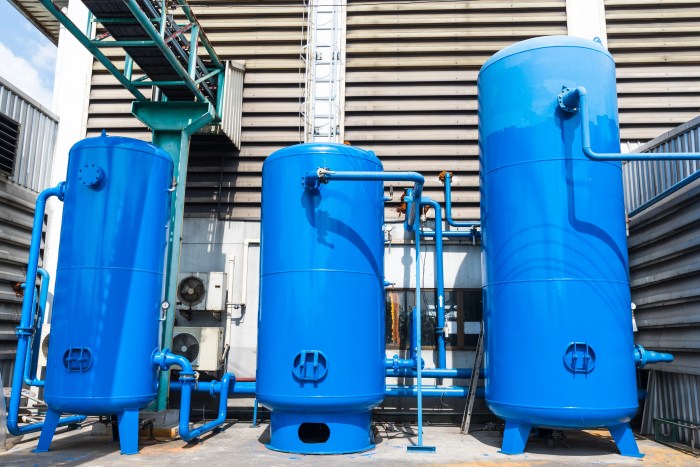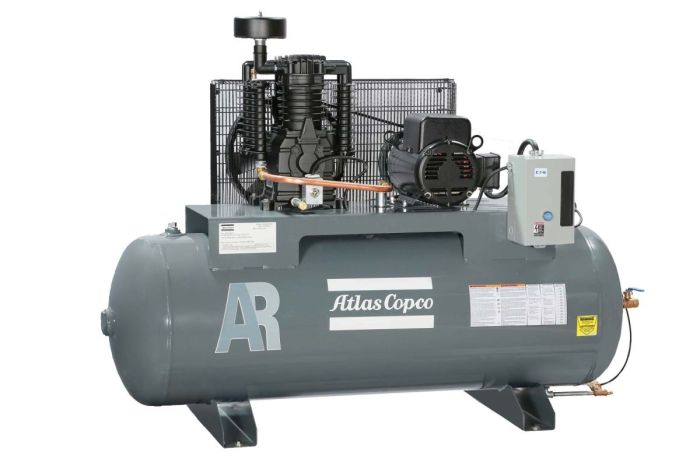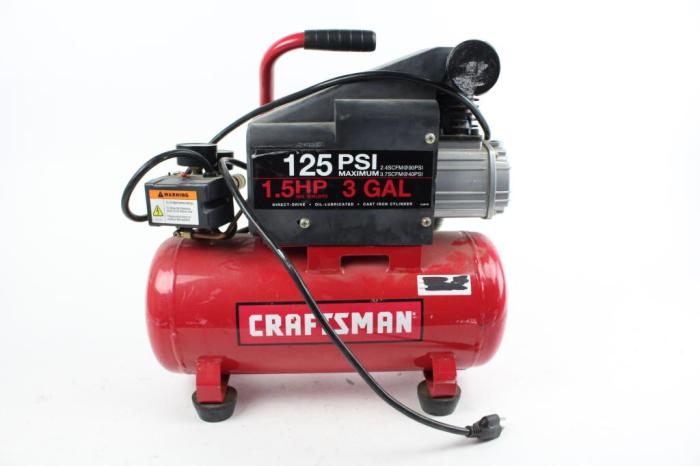The air compressor stops pumping air at what psi – The air compressor is a vital tool in many industries, but it can be frustrating when it stops pumping air at a specific PSI. This can be caused by a variety of factors, from mechanical issues to electrical problems. In this article, we will explore the most common causes of this problem and provide troubleshooting methods to help you identify and resolve the issue.
Air compressors are designed to pump air at a specific pressure, which is measured in pounds per square inch (PSI). When the compressor stops pumping air at the desired PSI, it can be a sign of a problem. The most common causes of this problem include:
Air Compressor Stops Pumping Air at Specific PSI

Air compressors are essential tools in various industries and applications, providing compressed air for powering pneumatic tools, operating machinery, and performing numerous tasks. However, it can be frustrating when an air compressor stops pumping air at a specific pressure (PSI), hindering its functionality.
This article delves into the common causes of this issue, provides troubleshooting methods to identify the underlying problem, and discusses repair or replacement options. Additionally, preventative measures are Artikeld to help avoid future occurrences.
Common Causes of Air Compressor Stopping Pumping Air at Specific PSI
Several factors can contribute to an air compressor ceasing to pump air at a particular PSI. These include:
- Mechanical issues:Worn or damaged valves, pistons, or other mechanical components can hinder the compressor’s ability to generate and maintain pressure.
- Electrical problems:Faulty electrical connections, switches, or wiring can disrupt the power supply to the compressor, affecting its operation.
- Air leaks:Holes or cracks in hoses, fittings, or the compressor tank can allow compressed air to escape, reducing pressure levels.
- Overheating:Excessive heat buildup can cause thermal expansion, leading to component failure and reduced air output.
- Contaminated air:Dirt, debris, or moisture in the air supply can clog filters, valves, or other components, impeding airflow and pressure generation.
Troubleshooting Methods for Identifying the Underlying Cause
Troubleshooting an air compressor that has stopped pumping air at a specific PSI involves a systematic approach:
- Check pressure gauges:Verify the accuracy of the pressure gauges on the compressor and receiver tank. If they indicate different readings, there may be a problem with the gauges or the pressure system.
- Inspect hoses and connections:Examine all hoses and fittings for leaks or blockages. Tighten any loose connections and replace damaged hoses.
- Identify potential leaks:Use a soapy water solution to spray around potential leak points, such as valves, fittings, and the tank. If bubbles appear, it indicates a leak.
- Check the unloader valve:The unloader valve regulates pressure in the compressor. If it malfunctions, it can prevent the compressor from reaching the desired PSI.
- Use diagnostic tools:Utilize diagnostic tools such as a multimeter or pressure gauge tester to pinpoint electrical or mechanical issues.
Repair or Replacement Options for Resolving the Issue
Depending on the severity of the problem, various repair or replacement options are available:
- Minor repairs:Simple repairs, such as replacing worn gaskets or tightening loose connections, can often resolve the issue.
- Major repairs:More complex repairs, such as replacing a faulty valve or piston, may be necessary for severe mechanical problems.
- Replacement:If the cost of repairs is excessive or the compressor is beyond repair, replacing the unit may be the most cost-effective solution.
Preventative Measures to Avoid Future Issues, The air compressor stops pumping air at what psi
Regular maintenance and preventative measures can help prevent an air compressor from stopping pumping air at a specific PSI:
- Regular inspections:Conduct routine inspections to check for leaks, loose connections, or worn components.
- Proper lubrication:Ensure that the compressor is adequately lubricated according to the manufacturer’s recommendations.
- Monitor air pressure levels:Regularly monitor air pressure levels to ensure they are within the recommended range.
- Use high-quality components:Utilize high-quality hoses, fittings, and other components to minimize the risk of leaks and failures.
- Follow manufacturer recommendations:Adhere to the manufacturer’s guidelines for operation, maintenance, and troubleshooting to ensure optimal performance.
Question & Answer Hub: The Air Compressor Stops Pumping Air At What Psi
Why does my air compressor stop pumping air at a specific PSI?
There are a variety of reasons why an air compressor might stop pumping air at a specific PSI. The most common causes include mechanical issues, electrical problems, and leaks.
How can I troubleshoot an air compressor that has stopped pumping air at a specific PSI?
To troubleshoot an air compressor that has stopped pumping air at a specific PSI, you can follow these steps:
- Check the pressure gauge to make sure that it is reading correctly.
- Inspect the hoses and connections for leaks.
- Check the electrical connections to make sure that they are secure.
- If you are unable to find the source of the problem, you can contact a qualified technician for assistance.
What are the most common repairs for an air compressor that has stopped pumping air at a specific PSI?
The most common repairs for an air compressor that has stopped pumping air at a specific PSI include:
- Replacing the pressure switch
- Replacing the unloader valve
- Repairing or replacing the compressor head
- Replacing the motor

